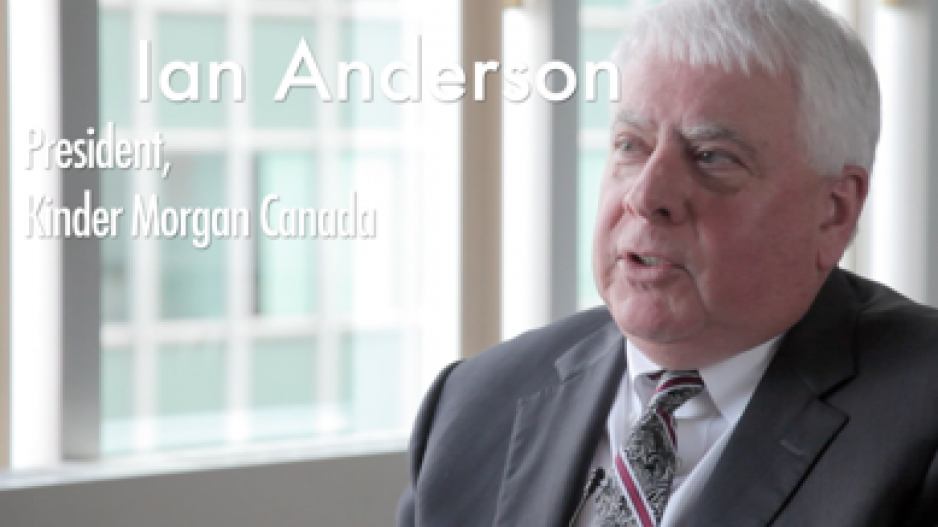Five protestors facing a $5.6 million lawsuit from Kinder Morgan Inc. (NYSE:KMI) for halting geotechnical crews from doing their work on Burnaby Mountain need not worry about being bankrupt, should the company get the injunction it is seeking so it can get the work done, said Kinder Morgan Canada president Ian Anderson.
“Much has been made of the civil suit that we filed,” Anderson said in a teleconference call with the press Wednesday November 12. “Some have called it heavy-handed.”
Anderson said the lawsuit it filed last week against five protestors is needed to establish that their actions, which stopped crews from doing their work on Burnaby Mountain, could have a financial impact on the company, which has approval from the National Energy Board to do the work. Kinder Morgan is seeking an injunction against protestors.
“We must demonstrate that there are financial implications if we don’t do the work,” Anderson explained.
“I have no intention of pursuing any damages, if we can undertake the work that we know we have a legal clearance to complete.”
Kinder Morgan needs to drill into Burnaby Mountain to take geological samples. That will help it determine whether tunneling through the mountain is a viable option for an expanded Trans Mountain pipeline. The alternative would be a route that would be much more disruptive to landowners in Burnaby.
“If we do the tunnel option, it will mean the landowners between our facilities in Burnaby will not be impacted by our pipeline expansion construction,” Anderson said. “It also means that the existing line that travels through that community will be moved into a tunnel.”
Workers trying to do the geotechnical work have been stopped “by individuals set on civil disobedience and intimidation,” Anderson said.
“The court case that went on last week is not about us not wanting to listen to opposition nor trying to stifle it at all. The court case is about us lawfully trying to carry out studies on Burnaby Mountain that have been authorized by the National Energy Board, and it’s about the people who have decided to block us from doing so.”
Once the work is completed, Anderson said the area where the work is taking place will be restored, trees that were cut down will be replanted and the city will be compensated for any damage that can’t be remediated.
The Trans Mountain pipeline is 60 years old. It provides much of the Lower Mainland’s gas, diesel and jet fuel, most of which is refined in Burnaby at the Chevron refinery.
Kinder Morgan wants to twin and expand the pipeline from the current 300,000 barrels of oil per day to 890,000. That would increase oil tanker traffic in the Burrard Inlet from five tankers per month to 34 per month.
Anderson said the company’s budget for the TransMountain expansion is still $5.4 billion, although he said the delays in doing geotechnical work could add to the costs.
Oil prices have fallen below $80 per barrel, and the recent sweep of Congress by Republicans in the U.S. is viewed to bode well for the Keystone XL pipeline.
Asked if either or both of those factors will have an impact on Kinder Morgan’s business case or long-term contracts with shippers, Anderson said they would not.
The Keystone XL pipeline would carry bitumen from Alberta and crude from Montana and North Dakota to American refineries in Nebraska, Illinois and the Gulf Coast of Texas.
The TransMountain, by contrast, would move bitumen from Alberta to refineries in B.C., California, Washington State and Asia.
Asked how many of the dozens of First Nations along the pipeline route and marine corridor that the tankers would follow are on board with the project, Anderson said 16 First Nations groups have signed support agreements.



